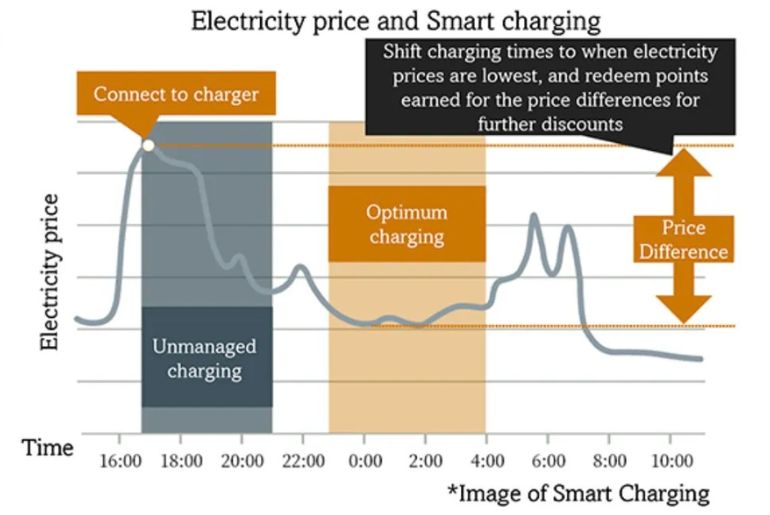Mitsubishi Motors Corporation (MMC), MC Retail Energy Co., Ltd. (MC Retail Energy), Kaluza Japan and Mitsubishi Corporation (MC) have announced their official commencement of an electric-vehicle (EV) smart-charging service leveraging connected technologies. The commercial viability of this business, which is the first of its kind in Japan1, was verified during a proof of concept (PoC2) that began in February 2024. The objectives of the PoC were to refine both the level of service provided and precision of the app used by its customers.
Features of this Service
This service makes it possible for owners of MMC’s Outlander PHEVs3 to directly control the charging of their vehicles from an advanced energy software platform provided by Kaluza Japan via MMC’s connected systems4. It offers customers a new EV-charging experience, as it can optimize charging in line with electricity prices. The service will be made available through subscriptions to MC Retail Energy’s EV smart-charging plans for households.
Benefits to Customers:
Daily Smart Charging: Simply by connecting their Outlander PHEVs to their home charging stations and using the smartphone app to set the time they intend to next use their vehicles, customers can instruct the system to automatically control when their vehicles are charged. They do not need to purchase any special equipment or follow any complicated procedures.
Points System Based on Use of Controlled Charging (electricity discounts): Some of the cost savings realized by using this service to optimize charging via MC Retail Energy’s smart-charging plans will be returned to the customer in the form of electricity-bill discounts.
Benefits to Society:
Effective Use of Renewable Energies (renewables): Electricity prices fluctuate based on power generation and demand, and they tend to be lower when a lot of electricity is generated by renewables. As this system factors those prices into the timing of its controlled EV charging, it will make an indirect contribution to using renewables more effectively.
Efficient “Peak-hour” Shifts: By controlling charging, this service will also help to shift the hours of peak electricity loads to facilitate more efficient operation of Japan’s energy grid, which will lessen the burden on society when costs are incurred in upgrading or expanding that infrastructure.

